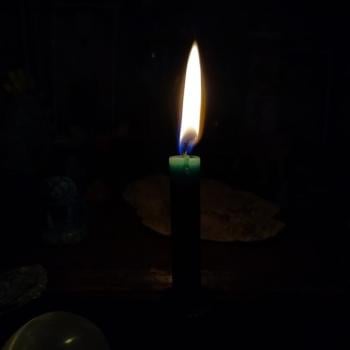Editors' Note: This article is part of the Patheos Public Square on Homeschooling and Public Education. Read other perspectives here.
I was homeschooled by Christian parents who took seriously the admonition in Proverbs to "[t]rain up a child in the way he should go." Like many other homeschooling parents I've met over the years, their commitment to this duty was unwavering, and thanks to that my biography reads like a highlights reel of Christian homeschooling culture: A Beka, Sonlight, Apologia, and Greenleaf Press curriculum; TeenPact (as both student and staff); Worldview Academy; Generation Joshua; Patrick Henry College-summer camp; and of course, the crown jewel: attending Patrick Henry College, the small liberal arts college near Washington, DC that was founded as a haven for homeschooled students seeking a Christian college education.
Today I'm a lawyer who litigates religious-liberty cases by day and advocates for increased homeschool regulation by night. To many, that combination might sound discordant. I'd like to explain why it isn't.
The homeschooling movement has grown since my childhood—there are now nearly 2 million homeschooled students in the U.S.—but those who homeschool for religious reasons remain a core component. For example, according to a 2011 National Household Education Survey, 64 percent of homeschooling parents said that they homeschool due to a "desire to provide religious instruction" and 77 percent said that they do so out of a "desire to provide moral instruction."
When homeschooling is discussed in a forum like this, emotions sometimes run high. People get lumped into one of two opposing camps—for or against—and all too often both sides see the other only in caricature. I want to cut through all of that. I'm a homeschool graduate who has spoken with hundreds of homeschool alumni about their experiences, performed extensive research on U.S. homeschooling, and volunteered substantial time to helping homeschool alumni who now face difficulties due to their upbringing. And I can say this without a doubt: Homeschooling can be done very well, and it can also be done very badly.
Homeschooling can be an excellent educational tool for unlocking children's potential, providing a safe and productive learning environment, and spurring them on to accomplish their dreams. But it can also be used to deny children education, stymie their ambition, break their spirits, and even to hide horrific abuse and neglect. Homeschooling itself is not a guarantee of any particular outcome; it is merely a tool that can be used by people for good or ill.
Yet, despite this potential for such vastly different outcomes, current homeschool regulations are sparse. In Virginia, parents who homeschool for religious reasons need not teach their children anything, not even how to read. In Utah, homeschooled children are not protected by the educational-neglect statute, meaning that if you call social services about, say, a homeschooled twelve-year-old who is receiving no instruction, social services cannot intervene. Only about half the states measure homeschooled students' academic progress (many of those have opt-out mechanisms). Only nine states have remedial measures for inadequate academic progress, meaning that some states that mandate test-taking do nothing with the scores. Eleven states have no requirement that parents notify the school district that their child will be homeschooled; the state, therefore, may not even know that the child exists. Forty-one states have no teacher-qualification requirements, which allows parents to homeschool through grades that they did not complete. And fourteen states have no subject-matter requirements, meaning that parents may award a high-school diploma even when the child did not take commonly required math, science, social science, or English courses.




